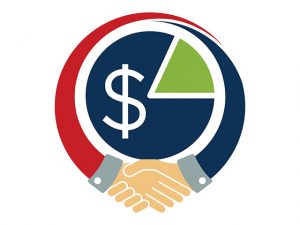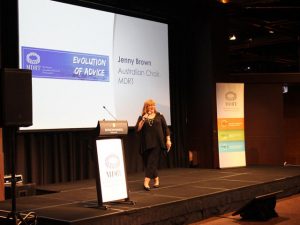The existence of a sound social security system does not mean the Government can, or will, meet the financial needs of people after an illness, accident or death.
Yet, it is not surprising to find people who believe this is the case and may be under-insured, or even uninsured.
In this article, Knowledge Master’s Jim Prigg encourages advisers to debunk this myth but also to use it as a springboard to present the value of insurance and good advice.
He presents some aspects of the myth and some conversation starters to highlight why social security is the reason people need life insurance.
One of the advantages of living in a first world, developed nation is that we have universal health care and a social security system that provides basic levels of care for all Australians.
Yet, sadly, there is a persistent belief the social security system extends to providing financial support in the event of long-term illness, accident or death.
debunking the myth of the social security lifeline can go some way to helping clients understand why being uninsured, or under-insured could leave them, and their families, in severe financial difficulty
The tragedy of this belief is that people may not plan for the unexpected, nor put in place debt redemption strategies, and they don’t allow for liquidity in their estate or investment planning if something tragic happens to them.
For financial advisers, debunking the myth of the social security lifeline can go some way to helping clients understand why being uninsured, or under-insured could leave them, and their families, in severe financial difficulty in the event of a long term illness, a sickness, an accident or premature death.
The following is a list, broken down in categories, of the things the government or social security will not do for people, their families or businesses:
Medical Expenses
- Pay for special medications or treatment
- Pay extra money for health emergencies
- Pay a lump sum for a defined event or illness
- Cover all of a person’s last illness or final death expenses such as funerals, medical expenses or hospital occupancy
Family Debt
- Pay off a mortgage to ensure the family has a home
- Pay off credit card or store debts
- Pay extra income to a widow
- Pay extra money for children’s education or health needs
- Provide and pay for children’s education expenses
- Pay local government, water, gas or electricity rates and costs.
Business Debt
- Pay out business partners
- Redeem business debt
- Extinguish overdrafts on draw down facilities
- Extinguish debts on death
- Extinguish debts in the case of long-term disability
It is important to remember the social security system will not deal with these issues and even where it does supply financial support it will fall short of a properly constructed protection plan, which can do all of the above when purchased, completed and owned properly.
This list paints a grim picture of what will not happen if a client fails to take up adequate insurance cover, but financial advisers can use these scenarios as talking points to initiate a discussion around life insurance.
Using the points above, and turning them around presents a number of reasons to hold life insurance, and a number of ways to initiate a discussion with clients who may be thinking of ‘going it alone’.
You should have life insurance because you…have debts…have dependants…have financial responsibilities
You should have life insurance because you:
…have debts like a mortgage, credit cards or personal loans secured against assets to third parties.
…have dependants where expenses and debts can be quite large over a number of years. These costs include everyday living expenses and future promises of education or a start in life.
…are healthy and now is the best time to get non-cancellable contracts for full cover at standard rates. Waiting till later could mean exclusions, loadings or outright refusal because of health issues.
…are the homemaker, especially if you have children. It costs a lot more than the average weekly wage to employ someone to do the all the work and running around you do out of love.
…are in a relationship and both in paid work. If you need two incomes to support your debt and lifestyle you need to cover that capital cost.
…have children from a previous relationship. Blended families and extra responsibilities create a greater need for protection for those whom you love who may no longer reside with you.
…have aged parents or dependant relatives. Caring for those older or not as fortunate is a big responsibility that takes love, time and money, especially if you are not around.
…have financial responsibilities that need to be taken care of such as burial costs, private loans, income tax, rates or credit card debts.
…are in a business partnership that has debt, liquidity or equity positions to fulfil should death, disability or long-term injury occur for any of the partners.
…have a favourite charity, club or cause you want to continue supporting. Many people can create immortality for themselves and longevity for their passion in life by gifting pre-ordained funds after they pass away.
…want to make bequests and final gifts to loved ones. A cash fund can be created to give loved, respected, loyal and lifelong friends a simple thank you after you have passed on.
…want to inject liquidity into your estate for succession equality. Some estates are high in non-cashable assets like farms, land, businesses and trusts. Life cover provides an excellent method of liquidity injection.
Serious accidents and unexpected health problems happen every day. No one is bullet proof but that does not mean the public purse will come to the rescue in a time of need.
Putting the right amount of money in the right hands in the quickest time is an economic responsibility, and no debt should last longer than the person who created it.

This article is reprinted with permission from Jim Prigg CEO and founder of Knowledgemaster Pty Ltd. Knowledgemaster is an online resources company that delivers practical communications, interaction, sales and soft skills tips, tactics, techniques. Learn more about winning business programs and courses by contacting Jim.
Contact Jim Prigg to learn more about winning business programs and courses.
Contact or follow the author: Website | Email | Telephone: 03 5232 1500, 0408 520 453










